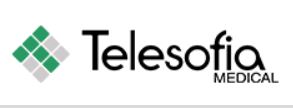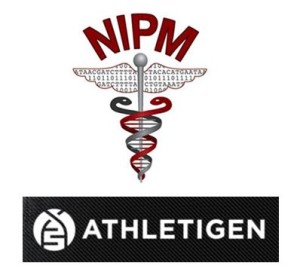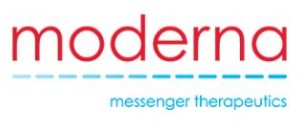- 6 Must-Know Facts About Cryotherapy (pharmacytimes.com)
Touted as a way to reduce pain, speed injury recovery, and improve mood, cryotherapy involves exposing the body to temperatures up to minus 300 degrees Fahrenheit…Celebrities and some athletes…are proponents of this treatment. However, a recent death has called the safety and efficacy of cryotherapy into question…Chelsea Ake-Salvacion who worked at a Las Vegas cryotherapy center called Rejuvenice died during an after-hours session in a tank, where she was alone...found “rock-hard solid.”…The coroner’s office determined that Ake-Salvacion died from asphyxia from an oxygen-poor environment…Cryotherapy environments can have oxygen levels around 5%—so low that someone can fall unconscious and die…Here are 6 must-know facts about cryotherapy:
- There are 2 ways to experience whole-body cryotherapy.
- One study did find some evidence that whole-body cryotherapy can reduce inflammation.
- Another study shot down cryotherapy as a successful treatment for repairing muscle damage or reducing soreness.
- Cold baths and packs may be the way to go until further research is completed.
- Cryotherapy is not regulated.
- Ake-Salvacion is not the only one harmed by cryotherapy.
- Health literacy startup wants to redefine personalized videos to improve adherence (medcitynews.com)
Israeli digital health startup Telesofia Medical has set out to be as specific as possible when it comes to developing personalized video content for health literacy program. Many of its customers are big pharma companies but some are health systems keen to prepare patients for an upcoming procedure or help patients follow a care plan when they are diagnosed with a condition or discharged from the hospital…part of the problem is people hear instructions like “take two pills twice daily” and accept it without really understanding what that means…The problem isn’t with the patient, it is with us not providing easy to understand information...or taking it for granted that patients understand the imparted information correctly…The videos, with content that can be customized by each customer, can include the patient’s care manager, doctor, or another healthcare professional. Depending on the person’s name, age and sex, the video will factor that data and address individuals personally.
- Gene therapies offer dramatic promise but shocking costs (washingtonpost.com)
…gene therapy might soon find itself steeped in a new controversy: soaring drug prices…crucial questions about how much patients will pay directly…industry leaders are…talking about ways to get ahead of potentially massive one-time price tags that could make insurers and patients balk…A gene therapy approved in Europe in 2012 costs close to $1 million, and prices are expected to follow suit in the United States. The therapies in the pipeline are mostly for rare genetic diseases: sickle cell, hemophilia or immune deficiency. Their likely high prices stem from the expected value; unlike drugs that a person takes regularly, gene therapies are designed to be given once and have lasting effects…But everyone involved anticipates the potential backlash against a seven-figure price tag, which is leading to radical proposals. Instead of paying for a treatment all at once, insurers and patients could make installment payments as long as the therapy works…Some researchers are adding up the cost of the traditional treatments that a patient will be able to avoid each year to determine a price that, although high, could lead to savings for the health-care system.
- Theranos isn’t the only diagnostics company exploiting regulatory loopholes (theverge.com)
Avoiding pre-market verification is downright easy…Theranos isn’t alone in avoiding regulation using an easily exploited loophole — in fact, it’s just one among many…Pathway Genomics, Admera Health, and Strand Life Sciences are diagnostics companies that offer cancer tests that impact people’s health care decisions. None of these companies have published data about their tests in peer-reviewed journals. Nor were any of these companies required to show regulators that their tests worked before they started marketing them to patients and physicians. That’s because each of these companies has been making use of what's known as the "laboratory developed test" loophole — which makes avoiding pre-market verification downright easy...Under the LDT loophole, any company that develops and conducts a diagnostic test in their own lab…can avoid submitting that test to the FDA before using it on patients. This get-out-of-regulation-free card exists because research hospitals often modify commercial tests. In the case of these hospitals, the academic researchers tend to publish their results anyway…The FDA knows this — even they’ve been calling LDTs a loophole — and the agency wants to change the way these tests are regulated…until that loophole closes, we’ll keep seeing companies using the LDTs as a dodge, because it’s a simpler and cheaper way to get to market. The real expense, of course, is patients’ health.
- Genetics company looking at what can make athletes better (reviewjournal.com)
Jeremy Koenig, CEO of Athletigen…visited the Nevada Institute of Personalized Medicine at UNLV…to talk about how genetic testing can help athletes become better, stronger and faster by leveraging the genes within them…The institute is conducting research, developing technology and providing education and training to improve individual and community health in Nevada. Personalized, or precision, medicine looks at genetic makeup to help provide a blueprint for effective treatments and disease prevention strategies…Koenig, who competed as a sprinter at the collegiate level in Canada, started Athletigen to help athletes use their genetic code to boost performance…Genetics can help show athletes whether they have a tendency toward endurance or power and their maximum level of oxygen consumption…When athletes know their risk for injury, for example, they can take preventative measures by adjusting their training routines and taking steps to ensure their rest and recovery after exertion…Collaboration between private industry and the University of Nevada, Las Vegas precision medicine initiative offers opportunities for new discoveries...
- Novartis, Roche find ‘outcome-based’ drug pricing an elusive dream (reuters.com)
Novartis's heart drug Entresto cuts the risk of re-hospitalization might have helped Chief Executive Joe Jimenez realize his ambition of getting insurers to pay more for treatments when they cut overall medical costs…Instead Jimenez and Severin Schwan, CEO of cross-town rival Roche, have been forced to concede that insurance companies…are not yet ready for such "outcome-based" pricing models…A key hurdle…is that electronic medical record systems aren't capable of accurately tracking a drug's role in reducing hospital stays or preventing further trips to the emergency room…This gap has largely stymied a push to change how drugs are priced and reimbursed by insurers and governments, even though both CEOs contend today's pay-per-pill approach can't be sustained…Drugs account for only around 10 percent of U.S. healthcare costs, Jimenez said, with hospital stays, medical personnel and other costs making up the rest. But existing records systems aren't up to the task of putting this data into perspective.
- Germany, U.S. in hot pursuit of ‘messenger’ drug molecules (newsdaily.com)
A molecule that carries the recipe for making drugs inside body cells is exciting scientists and investors alike, attracting hundreds of millions of dollars in a scramble for the next promising area of biotechnology… synthetic messenger RNA, or mRNA technology, a new approach to tackling a range of hard-to-treat diseases... In theory, the promise of mRNA is enormous, ranging from cancer to infectious diseases to heart and kidney disorders, since it could be used to tackle the 80 percent of proteins that are difficult to affect with existing medicines…In effect, mRNA serves as software that can be injected into the body to instruct ribosomes, the “3D-printers” found inside cells, to churn out desired proteins…This is a radically different approach from conventional approaches, where therapeutic proteins are produced outside the human body and…then be inserted back into the human body at great complexity and cost…“The field is moving very rapidly,”...“I predict it will have a significant impact.”...
- Patient data breaches widespread, beyond healthcare (healthcareitnews.com)
9 in 10 industries report PHI breaches; many unaware protected data exists within company records…It's not just hospitals. Or even payers. Some 392 million health records have been accessed in 1,931 protected health information breaches across a staggering 90 percent of industries, according to preliminary findings from a new Verizon report…These industries, across 25 countries, have seen health insurance information, personnel files or other data outside of traditional healthcare settings or industries stolen…"What makes our findings even more troubling is that many sectors - especially those outside of the healthcare industry - aren't even aware that they hold this type of data,"…Unlike with other data breaches, PHI breaches face an equal number of internal and external hackers…hacker tactics are determined by the type of data they're seeking and its location, rather than the country or company size…"This data can be extremely damaging in the hands of those wanting to commit various types of financial fraud,"...
- Rite Aid launches genetic testing for Rx (chaindrugreview.com)Theranos isn’t the only diagnostics company exploiting regulatory loopholes (theverge.com)
Rite Aid Corp. has begun offering Harmonyx Diagnostics genetic testing for medications, making it the nation’s first drug chain to provide the service…Rite Aid said…that the self-administered oral swab test — available in all of its pharmacies…helps patients determine the efficacy of their prescription medication based on their genetic makeup…Patients can buy the test kit at any Rite Aid…In the pharmacy, patients then swab inside their cheek, and then a Rite Aid pharmacist takes the sample and returns it to Harmonyx for processing. Harmonyx provides a state-licensed physician to review each patient’s test, and detailed results are sent to the pharmacist and the treating doctor. The results are received as soon as 24 hours after the laboratory receives the test, according to Rite Aid.
- Safeway to dissolve partnership with Theranos (pharmacist.com)
…code-named ‘T-Rex’...Safeway Inc. spent about $350 million to build clinics in more than 800 of its supermarkets to offer blood tests by startup Theranos Inc…But the tests never began, the clinics are now used largely for flu shots and travel-related vaccines, and the two companies have been negotiating to officially dissolve their partnership…Safeway executives said Theranos missed deadlines for the blood-testing rollout…article reported that the proprietary lab instrument developed by Theranos as the anchor of its growth strategy handled just a small fraction of the tests sold to consumers at the end of 2014…also…some of the startup’s former employees were leery about the machine’s accuracy.









